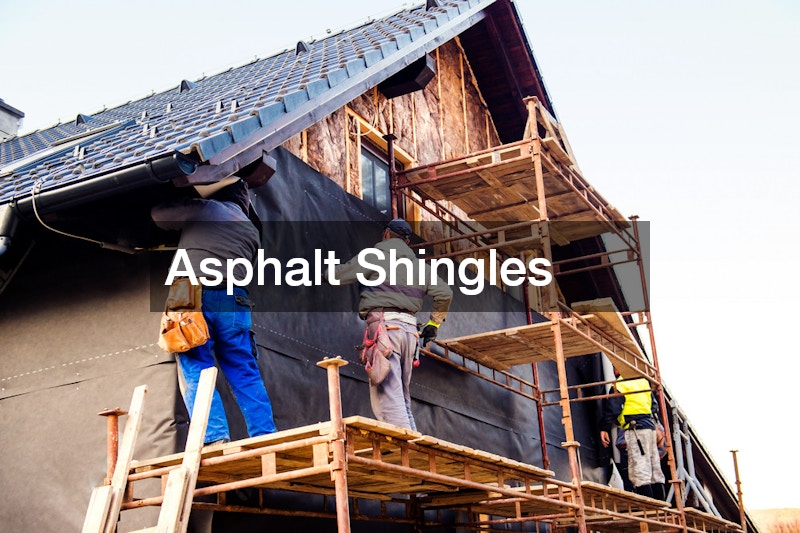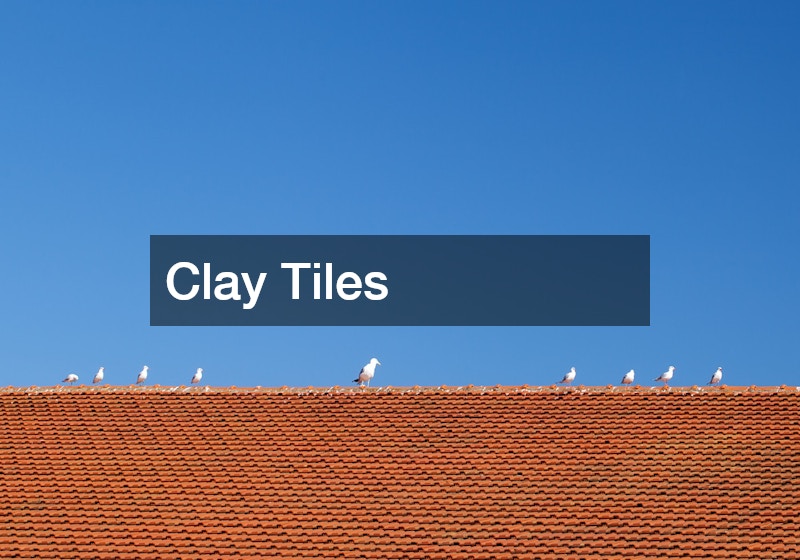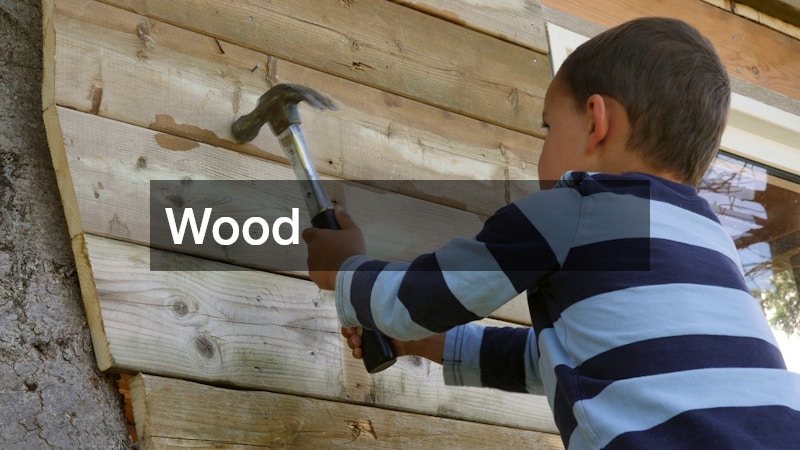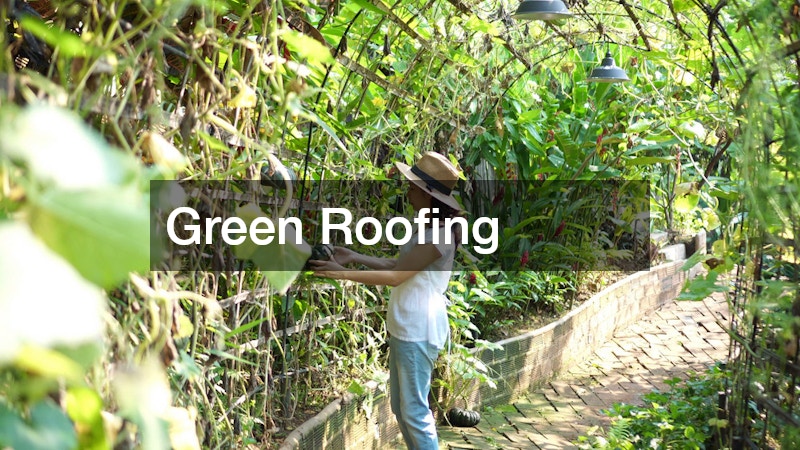Choosing the right roofing material for your home can feel overwhelming due to the wide variety of options available on the market. Each material comes with its own set of advantages and disadvantages, which can greatly impact the overall functionality and aesthetics of your property. It’s essential to consider factors such as durability, climate, budget, and maintenance before making your decision.
Modern roofing types have evolved to meet the various demands of homeowners, providing solutions that are not only practical but also environmentally friendly. With rapid advancements in technology, it is now possible to find roofing materials that enhance energy efficiency and improve the overall character of your home. Additionally, the emergence of roofing services that focus on sustainability allows homeowners to make more informed choices that align with their values.
Before deciding on a specific material, it’s advisable to consult with local roofing contractors who can provide expert insights based on your unique needs and climate conditions. Knowledgeable roofers can explain the pros and cons of each roofing type, ensuring you select a material that not only fits within your budget but also enhances the longevity of your home. In this article, we will explore several modern roofing types and their characteristics, helping you choose the best option for your home.

Asphalt Shingles
Asphalt shingles are one of the most popular roofing materials across North America, due to their affordability and ease of installation. They typically consist of a fiberglass mat covered with asphalt and mineral granules, making them durable and resistant to harsh weather conditions. Local roofing contractors often recommend asphalt shingles for residential homes, as they can offer a variety of styles and colors to match any design aesthetic.
One of the advantages of asphalt shingles is their relatively low cost compared to other roofing materials, along with their reasonably long lifespan, often lasting 15 to 30 years with proper maintenance. They are lightweight, making them easy to install and less taxing on the structural integrity of your home. Moreover, repairs are usually straightforward, which is beneficial for homeowners seeking timely solutions without breaking the bank.
While asphalt shingles are versatile, they do have some downsides, such as susceptibility to mold and mildew, especially in humid climates. Regardless, many homeowners find that the benefits outweigh the drawbacks, making asphalt shingles a go-to choice among modern roofing types. If you are considering this option, it’s wise to contact roofing services that specialize in asphalt shingle installation for the best results.
Metal Roofing
Metal roofing has gained immense popularity in recent years due to its longevity and energy efficiency. Comprising materials such as steel, aluminum, or copper, metal roofs can last 40 years or more with minimal maintenance. This type of roofing is ideal for homeowners seeking a sustainable, durable solution while ensuring modern roofing types are incorporated into their property.
One of the standout features of metal roofing is its ability to reflect sunlight, which can significantly reduce energy costs in extreme climates. Additionally, many metal roofing services offer a range of colors and finishes, allowing homeowners to customize their roofs to suit their preferences. Installation of metal roofs may require the expertise of skilled roofers to ensure precise fitting and weatherproofing, which is crucial for optimal performance.
While the initial investment for metal roofing may be higher than for asphalt shingles, the long-term savings on energy bills and maintenance can balance out the upfront costs. As more people become environmentally conscious, metal roofs’ recyclability adds to their appeal among eco-friendly modern roofing types. For anyone considering this option, it is advisable to consult a reliable roofing contractor who can provide guidance and assess your specific needs.

Clay Tiles
Clay tiles offer a classic and timeless appearance, making them an attractive option for homeowners looking to maintain traditional aesthetics while using modern roofing types. These tiles are made from natural clay and are known for their durability and ability to withstand harsh weather conditions. Clay roofing services have become increasingly sought after for their aesthetic appeal and functionality, particularly in warmer climates.
One of the key benefits of clay tiles is their resistance to fire, rot, and insect damage, ensuring that they can last for decades with minimal maintenance. The classic terra cotta and various glazed finishes allow for creative architectural designs and color choices. However, it is important to note that clay tiles can be heavier than other roofing materials, and a solid roofing structure is necessary to support their weight.
Furthermore, the installation of clay tiles typically requires specialized roofers with experience in this niche to ensure proper fitting and waterproofing. While the initial cost of clay tiles may be higher than asphalt shingles, the long lifespan and minimal upkeep may justify the expense over time. If you’re considering clay tiles for your home, contact local roofing contractors to explore your options and get expert advice tailored to your specific situation.
Slate
Slate roofing is another high-end option known for its natural beauty and remarkable durability. Comprised of metamorphic rock, slate tiles are naturally weather-resistant and can last for over a century with proper care. Given its aesthetic qualities and longevity, slate roofing is often favored in upscale residential projects as one of the sought-after modern roofing types.
Despite its durability, slate roofing does come with a higher price tag, both in terms of materials and installation, which usually involves experienced roofers. The sophisticated look of slate adds both elegance and value to any home, making it a worthy investment for those who can afford it. Slate can be found in a variety of colors, enhancing the overall appeal of a property.
A possible downside to slate roofing is its weight, which may require additional structural support to ensure stability. Homeowners should consult with qualified roofing contractors before installation to determine if their home is suitable for slate tiles. Additionally, as with any roofing material, routine inspections and maintenance are essential to extend the life of slate roofs and preserve their pristine look.

Wood
Wood shingles and shakes provide a rustic and natural aesthetic, popular among homeowners who prefer a warm, cozy look for their residences. Often made from cedar, pine, or redwood, wood roofing has a charm that enhances the overall character of any home. However, modern roofing types have evolved, leading to more eco-conscious options of treated wood to reduce vulnerabilities associated with traditional wood roofing.
One advantage of wood roofing is its excellent insulation properties, helping to moderate temperature extremes in your home. Additionally, with proper care, wood roofs can last up to 30 years or more. Nonetheless, wood roofing requires regular maintenance to prevent issues such as rot, mold, and insect damage, which are more susceptible compared to other materials.
When considering wood roofing, it’s crucial to engage experienced roofing contractors knowledgeable in wood-shingle installation for guaranteed quality and performance. Regular inspections and timely roof repairs are necessary components of wood roof maintenance. By investing time and resources in upkeep, homeowners can enjoy the natural elegance of wood while mitigating potential long-term costs.
Solar Roofing
Solar roofing has surged in popularity as a sustainable energy solution, combining functionality with cutting-edge technology. In essence, solar roofing systems generally consist of photovoltaic (PV) panels that convert sunlight into electricity, allowing homeowners to harness renewable energy. As modern roofing types go, solar roofs stand out by providing energy independence while reducing reliance on traditional power sources.
The financial investment in solar roofing can be significant; however, many homeowners find that long-term savings on electricity bills and potential tax credits can offset initial expenses. Additionally, integrating solar roofing may positively impact property value, appealing to environmentally conscious buyers when selling the home. Noteworthy is that installing solar roofing often requires a specialized metal roofing service to ensure optimal performance and aesthetic integration with the rest of the home.
Given the technological advancements in solar roofing, many manufacturers now offer aesthetically pleasing designs that blend seamlessly with traditional roofing materials. Whether you’re aiming to reduce your carbon footprint or simply lower energy costs, engaging with qualified roofers specialized in solar solutions is essential for achieving the best results. As you explore this option, careful consideration should be given to the architecture of your home, your budget, and local regulations regarding solar installation.

Green Roofing
Green roofing, or living roofs, represents an innovative approach to sustainable architecture, involving the cultivation of vegetation on a roof surface. This modern roofing type not only enhances the visual appeal of urban areas but also significantly contributes to improved insulation and energy efficiency. The installation of a green roof mimics natural ecosystems, providing benefits such as reducing heat absorption, filtering pollutants, and managing stormwater runoff.
Installing green roofs requires specialized knowledge and proper planning, which is why working with residential roofers experienced in this field is vital. These sustainable systems demand careful consideration of structural support, irrigation, and plant selection to ensure successful implementation. Additionally, green roofs necessitate more maintenance when compared to traditional roofing types, as regular upkeep is essential to support the vegetation’s health and longevity.
Despite these considerations, many homeowners find that the environmental benefits of green roofing, such as improved air quality and biodiversity, are well worth the investment. The integration of green roofs can also enhance the resale value of a home in eco-conscious markets. If you’re contemplating this option, seek guidance from roofing services that specialize in green installations to assess feasibility and practical solutions for your specific needs.
Concrete Tiles
Concrete tiles provide a robust and cost-effective alternative to traditional roofing materials. Made from a mixture of sand, cement, and water, concrete tiles are known for their impressive durability, longevity, and resistance to fire. With various styles and colors available, homeowners can achieve a classic look that aligns with their architectural preferences while incorporating modern roofing types.
One major benefit of concrete tiles is their energy-efficient properties, as they help to keep homes cooler in warmer climates. Additionally, concrete is highly resistant to damage from hail and wind, making it suitable for areas prone to severe weather. Although concrete tiles may be heavier than other options, a knowledgeable roofing contractor can evaluate your home’s structural capacity to determine suitability.
The installation of concrete tiles requires expertise from specialized roofers to ensure proper alignment and weatherproofing for durability. While initial costs can be higher than asphalt shingles, many homeowners find that the long-term benefits, including low maintenance and durability, make concrete tiles a worthwhile investment. Before making a decision, consult local roofing contractors who can provide advice tailored to your local climate and design requirements.
Rolled Roofing
Rolled roofing is often used for low-slope roofs and is designed to be cost-effective and easy to install. Composed of large sheets of roofing material, rolled roofing is typically made from fiberglass or bitumen, which makes it durable and water-resistant. Its simplicity appeals to homeowners seeking straightforward solutions when considering modern roofing types for flat or low-slope structures.
One of the primary advantages of rolled roofing is its affordability, as it is one of the least expensive roofing materials on the market. The ease of installation makes it a popular choice among roofing replacement services, especially for garages and sheds. However, rolled roofs typically have a shorter lifespan compared to other options, often lasting 5 to 10 years with proper maintenance.
While rolled roofing may not possess the aesthetic appeal of other materials, its practical application in specific contexts makes it a viable option. Homeowners should always consider the potential need for future repairs and maintenance when selecting rolled roofing. Engaging with experienced roofers can help ensure that your rolled roofing is properly installed and maintained throughout its lifespan.
Synthetic Composite Shingles
Synthetic composite shingles have emerged as a modern alternative to traditional asphalt or wood shingles, combining various materials to create a stylish and durable roofing solution. These shingles are engineered to mimic the appearance of wood, slate, or tile while offering enhanced durability. As such, synthetic composite shingles represent an innovative advance among modern roofing types.
One of the prominent advantages of synthetic composite shingles is their lightweight nature, making installation easier while reducing strain on a home’s structure. Moreover, they exhibit remarkable resistance to weather extremes, pests, and mildew, offering homeowners greater peace of mind. These shingles can last 15 to 50 years, depending on the specific product and installation quality, often coming with extensive warranties.
Moreover, because synthetic composite shingles can be manufactured in various styles and colors, homeowners can easily find a product that suits their design preferences. Engaging with knowledgeable roofing contractors who specialize in synthetic shingles will ensure that your installation meets the necessary standards and aesthetics. Overall, synthetic composite shingles offer a great balance of functionality and style within the broader category of modern roofing types.
Selecting the appropriate roofing material for your home is a significant decision that involves careful consideration of both practicality and aesthetics. Modern roofing types offer homeowners a wealth of options ranging from affordable asphalt shingles to eco-friendly green roofs and innovative synthetic shingles. Each material presents its own advantages and disadvantages, depending on factors such as durability, maintenance requirements, climate, and cost.
Consulting with local roofing contractors can provide valuable insights tailored to your specific home and needs, ensuring you choose a product that will stand the test of time and enhance your property’s value. Ultimately, whether you opt for traditional materials like slate and wood or modern solutions like solar and green roofing, making an informed choice can yield long-term benefits for your home. Keep in mind the importance of regular inspections and maintenance, ensuring that whichever option you select performs optimally throughout its lifecycle.
In the evolving landscape of modern roofing types, understanding all available options allows homeowners to contribute positively toward sustainability while enjoying the beauty and functionality of their chosen material. With guidance from experienced roofing professionals, your investment in the roof above your head can be a source of pride and security for many years to come.





